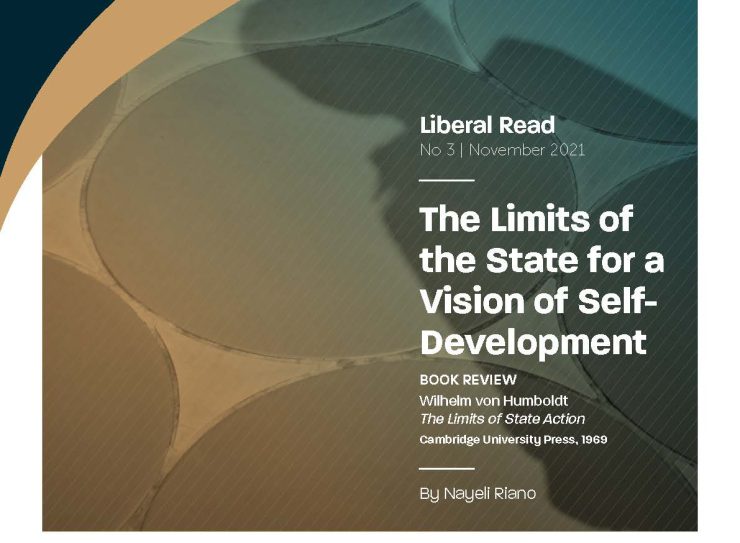Liberal Read No 3: The Limits of State for a Vision of Self-Development
BOOK REVIEW-
Wilhelm von Humboldt
“The Limits of State Action”
Cambridge University Press, 1969
By Nayeli Riano

BOOK REVIEW-
Wilhelm von Humboldt
“The Limits of State Action”
Cambridge University Press, 1969
By Nayeli Riano

When we consider liberalism as a political philosophy that theorises about the ends of the state and the nature of political society, proto-liberal philosophers such as Thomas Hobbes, John Locke, Charles de Montesquieu, and Jean Jacques Rousseau1 are brought to mind. These thinkers mark early liberalism that focused on the rights that men in a state of nature would choose as a result of their decision to live in a political society. These thinkers are from whom we have borrowed fundamental ideas for liberal societies such as free will, the government’s protection of individual freedom, the right to personal property, and political rule by consent of the governed. Wilhelm von Humboldt’s The Limits of State Action imparts a different central human value to the ones mentioned above—we may call it self-development.